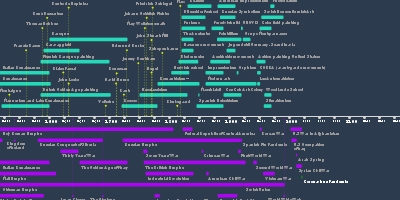jan 1, 600 BC - Anaxímenes
Description:
Anaximenes of Miletus (/ˌænækˈsɪməˌniːz/; Greek: Ἀναξιμένης ὁ Μιλήσιος; c. 586 – c. 526 BC) was an Ancient Greek Pre-Socratic philosopher active in the latter half of the 6th century BC.[1][2] The details of his life are obscure because none of his work has been preserved. Anaximenes' ideas and philosophies are only known today because of comments made by Aristotle and other writers on the history of Greek philosophy.[3]As one of the three philosophers of the Milesian School, considered the first revolutionary thinkers of the Western world,[4] Anaximenes is best known and identified as a younger friend or student of Anaximander, who was himself taught by Thales.[4][5][6] Each philosopher developed a distinct cosmology without completely rejecting their teacher's view of the universe or creating major disagreement between them.[7] Some of Anaximenes' writings apparently survived the Hellenistic Age, but no record of these documents currently exist.[2] Much of his astronomical thought was based on Anaximander's, though he altered Anaximander's astrological ideas to better fit his own philosophical views on physics and the natural world.[2] Like others in his school of thought, Anaximenes practiced material monism;[8][6] this tendency to identify one specific underlying reality made up of a material thing is what he is principally remembered for today.
Apollodorus of Damascus noted the dates Anaximander was alive in relation to well-known historical events, and estimated Anaximenes' lifespan as having occurred during the same time period in which Cyrus the Great defeated Croesus at the Battle of Thymbra in 546 BC.[2] Anaximenes was the last known Milesian philosopher, as Miletus was captured by the Persian army in 494 BC.[7]
Added to timeline:
Date:
jan 1, 600 BC
Now
~ 2627 years ago
